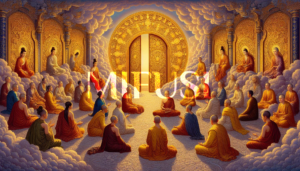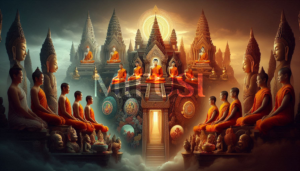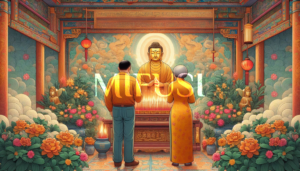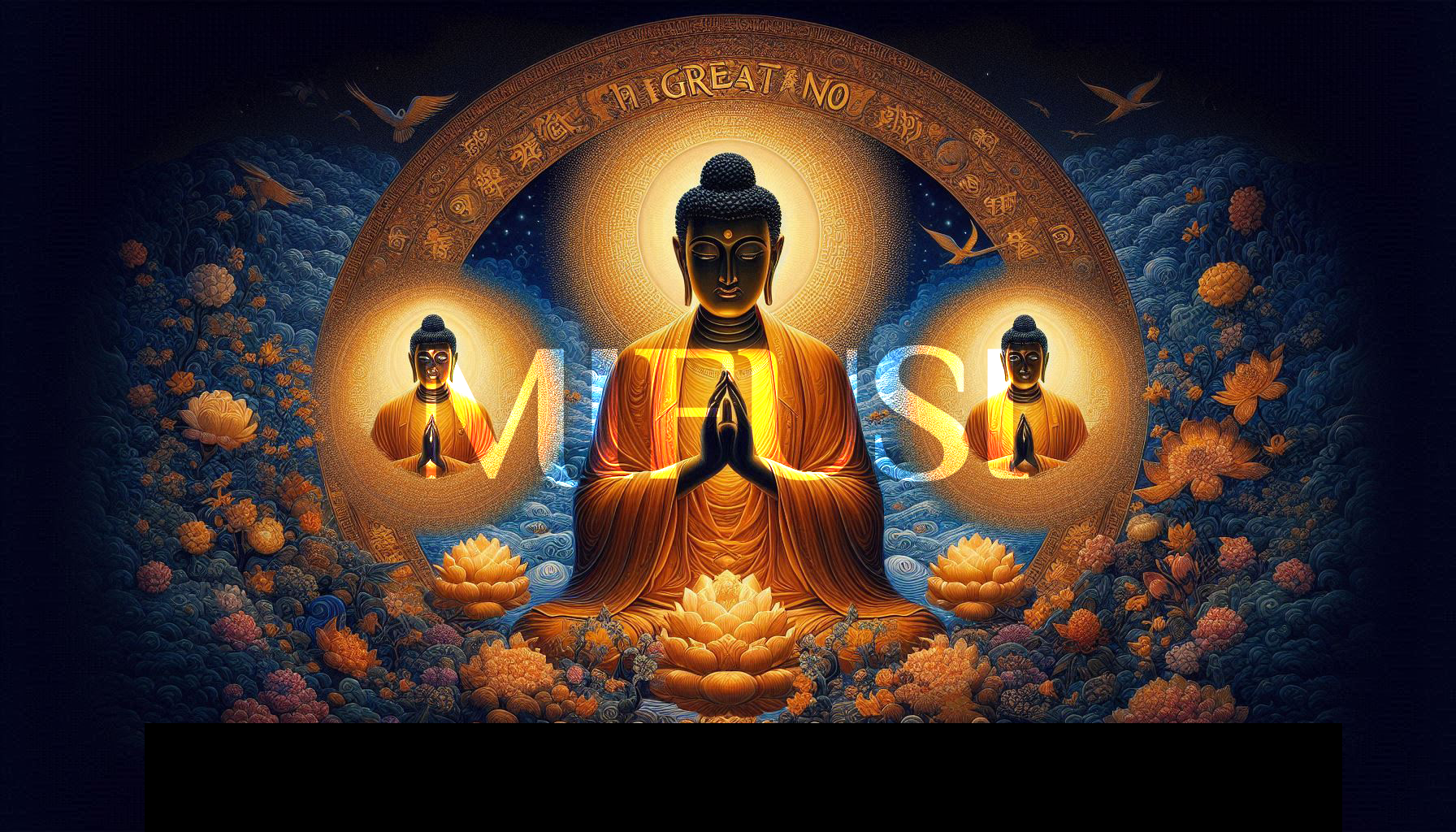The Four Great Vows
Tứ hoằng thệ nguyện by Vosac on Mon Mar 01, 2010 1:35 pm, translated by ngocxuan.
According to the Mahayana Buddhist tradition, practitioners entering Bodhisattva practice recite the Four Great Vows during nightly prayer sessions. These vows express the aspirant’s commitment to certain ideals:
“Sentient beings are numberless; I vow to save them.”
“Desires are inexhaustible; I vow to put an end to them.”
“The Dharmas are boundless; I vow to master them.”
“The Buddha Way is unsurpassable; I vow to attain it.”
While these vows reflect noble intentions and the practitioner’s deep compassion for all beings, they may seem idealistic and unattainable in reality, perhaps even delusions of grandeur.
The salvation of mankind is not a human affair; it is the domain of Heaven. Improving humanity requires collective effort from all, not just a select few individuals.
The Four Great Vows in Buddhism may mislead disciples into believing that simply sitting and chanting sutras will bring them countless blessings to distribute to all beings. This notion is erroneous because reciting sutras benefits the individual alone, as the Buddhas have no need to listen to them. The true blessing derived from sutra recitation comes from understanding the teachings and applying them to choose the right path in life and avoid negative karma.
Even if reciting sutras were to bring countless blessings, they would be utterly insignificant given the powerless and minuscule stature of humanity in the vastness of the universe. Therefore, a person with no blessings vowing to save all sentient beings is akin to a pauper trying to give money to every individual in the world, both tangible and intangible. It’s like an incompetent person attempting the impossible. Such individuals talk the talk but cannot walk the walk. These vows may sound impressive, but they are nothing but falsehoods and nonsense. Anyone who believes in them is only fooling themselves.
Truth seekers must carefully consider the implications of making empty and meaningless vows to avoid blindly repeating them. It’s essential to understand our abilities and limitations when praying or expressing wishes, preventing others from perceiving us as naive, foolish, or even egotistical, arrogant, and boastful.
This article solely delves into the interpretation of the first vow, leaving the exploration of the remaining vows to the reader.
revised 3/1/2024
Related Post

Nirvana Gates: Qualifications for entry
Nirvana Gates: Qualifications for entry Pháp tu để được về Niết Bàn (thiên đàng); by Chie on Fri Aug 28,...

Story 4 – Chimdada’s quest for Magic
Story 4 - Chimdada's quest for Magic Câu chuyện số 4 - Chimdada cầu đạo by ThầyGià - 12 November...

Chapter VI: II – Ucchusma Lectures On The Dharani Of Great Satisfaction And Wonderful Magic
II.Ucchusma Lectures On The Dharani Of Great Satisfaction And Wonderful Magic. North India, tripitaka master Ajitasena (the Invincible General) translated...

Introduction To Religious Scholar Triệu Phước.
Scholar Trieu Phuoc (born in 1948 in Tra Vinh, Vietnam) is a Tantric guru, has the name Buu Son, Duc...

Introduction
Introduction Mat Giao (Secret Teachings) is pleased to present to our fellow practitioners the book "Mysticism in "The Investiture of...

HEAVEN’S PLAN: WORLD’S FUTURE
HEAVEN’S PLAN: WORLD'S FUTURE (Cơ cho Thế giới by hoctro-gia on 17 Sep 2016 - translated by Devoted_HM, edited by...

WHY DIVINERS END UP POOR?
WHY DIVINERS END UP POOR? by Hữu-Không on 28 April 2013 - Translated by Huu Khong and edited by Rain9811...

My mom’s mystical experiences
My mom's mystical experiences CHUYỆN HUYỀN BÍ CỦA MẸ CON by Namlinhchi - translated by Bluesky - edited by Horangi....
